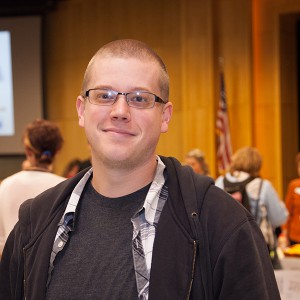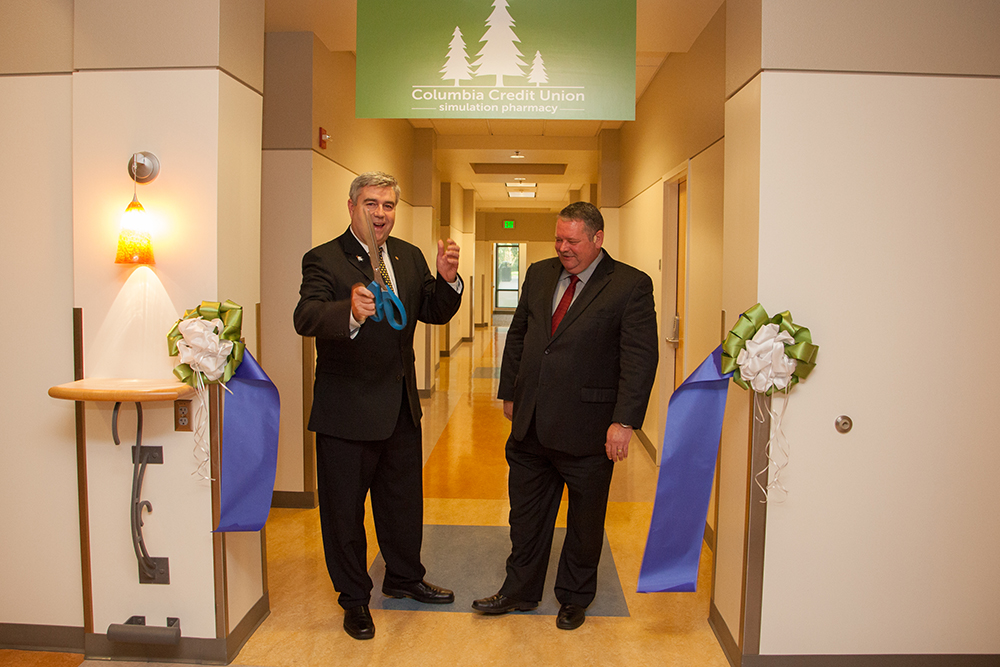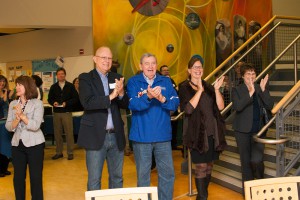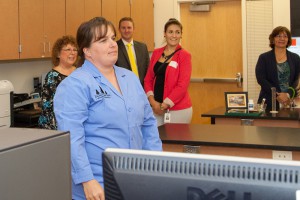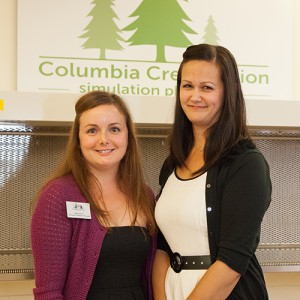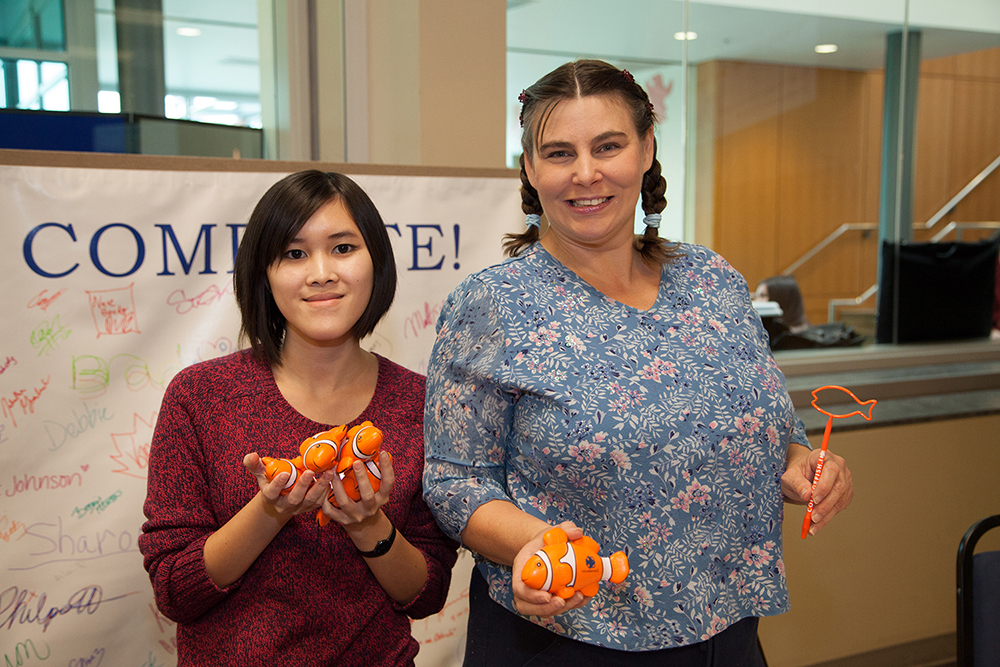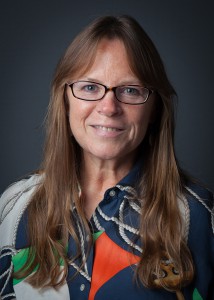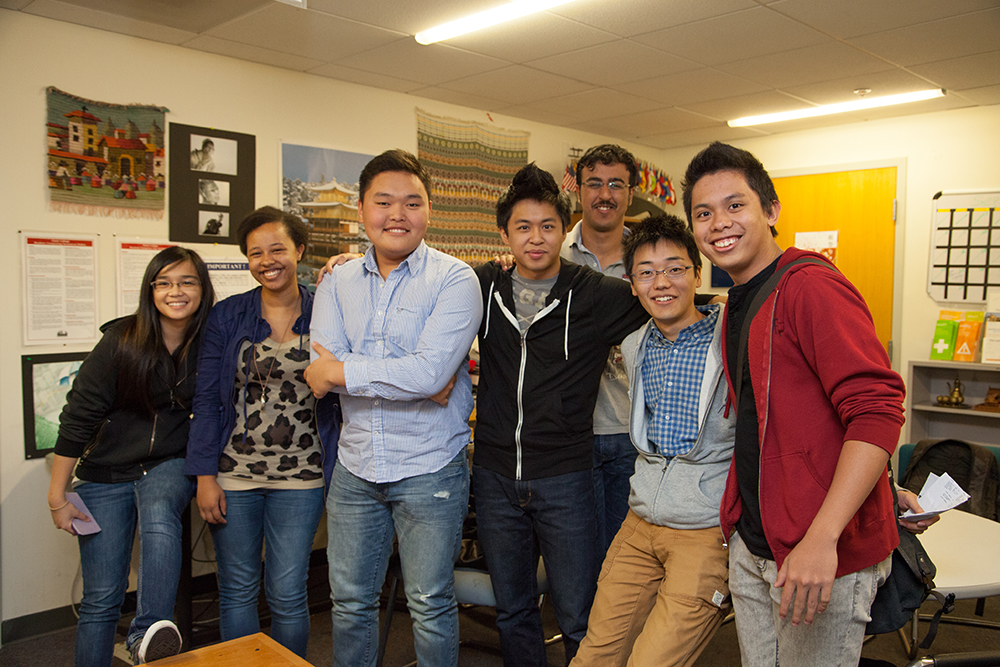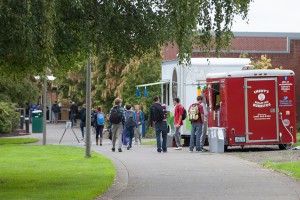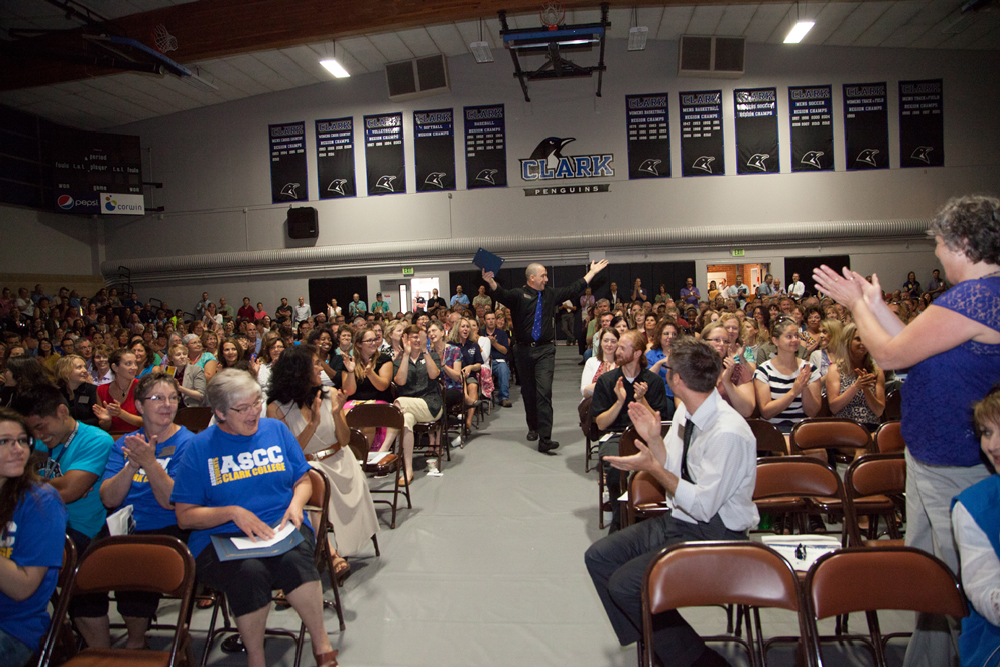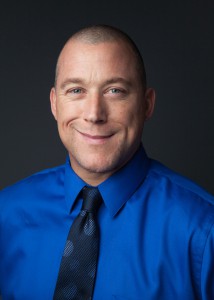Everyone’s Involved
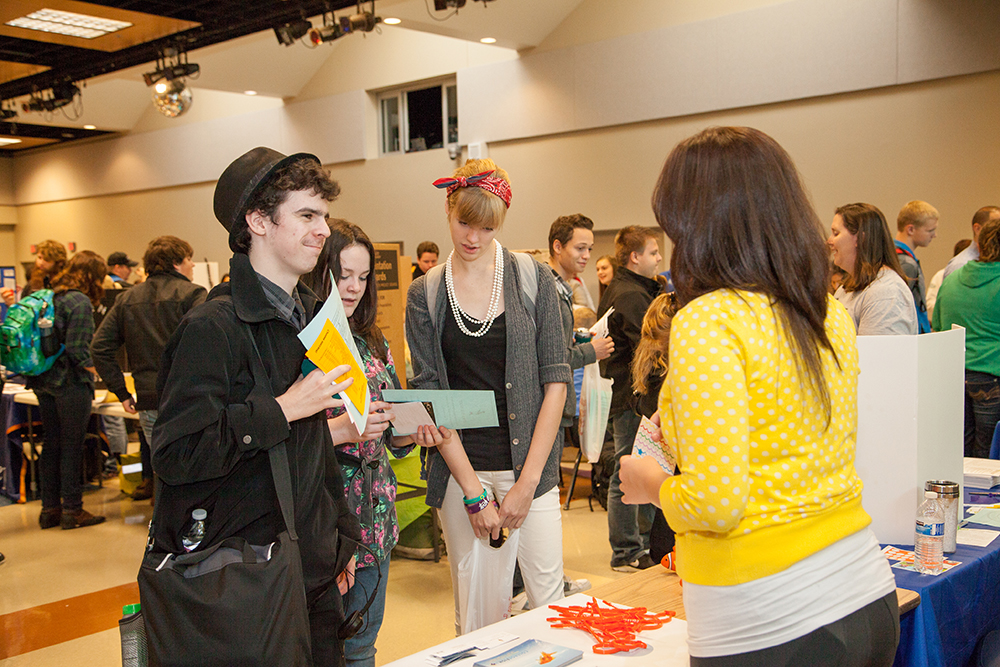
Phi Theta Kappa advisor Melissa Sinclair, far right in yellow shirt, gives students information about the program.
Gaiser Student Center was bustling with activity on October 2 as students attended the college’s first-ever Involvement Fair. In previous years, the college has hosted a quarterly Student Club Fair, but this year the event expanded to include tables for not just clubs, but also departments and programs like Financial Aid, CollegeFish.org, and the Bookstore.
“We wanted to expand on the engagement opportunities we were highlighting for students,” explained Director of Student Life Sarah Gruhler.
Clark student Brandon Nimmo was manning a table representing the college’s Penguin Help Desk, a free service staffed by Computer Support Specialist students that provides computer assistance and repair to students, faculty, and anyone in the community. Nimmo said he’d received a lot of visitors at his table interested in the Help Desk’s services–though, he added, they might have to wait a bit to access them. “We have a lot of computers there waiting to be fixed right now,” he said. “We stay very busy.”
Nimmo wasn’t interested in signing up for any clubs himself. “I honestly don’t have time,” he said. The Air Force veteran is currently juggling working 30-to-40 hours per week at the Veterans Administration with a full-time class load and helping to care for his daughter, 2, and stepdaughter, 13.
This is the challenge facing many Clark students–they’re too busy balancing jobs and family and homework to participate in extracurricular activities. But, Gruhler said, it can be helpful to their long-term success if they do.
“In Student Life we emphasize out-of-class learning opportunities,” she said. “Clubs are a great way for students to pursue their interests and try new things while gaining experience, learning new skills and connecting with other students. Future schools and employers are not just interested in your degree, but in all the other experiences that set students apart as individuals. Clubs help students connect, network and ultimately provide support to help them achieve their goals.”
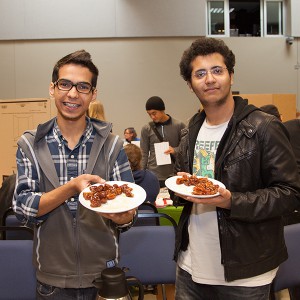
Saudi Students Club members Majed Alhumaidani and Ahmed Biladi share dates and culture with their fellow students.
For first-year student Ahmed Biladi, a student club is also a way to promote understanding about his culture. Biladi, 18, is one of a growing number of Clark international students from Saudi Arabia–in fact, fall 2013 marks the first quarter that Saudi Arabia is the most common country of origin for Clark international students, the result of new partnerships between Clark College International Programs and educational organizations in the Middle East including the Saudi Arabian Cultural Mission.
When Biladi first came to the United States, he encountered some disheartening preconceptions about his homeland. “Some of the most bizarre questions I’ve gotten have been: ‘Do you guys still ride camels? Is the country covered in sand? Do you still live in tents?'” he said with a laugh. “There’s a lot of misinformation about Saudis, so we decided to start a club to share our culture with the Clark community.”
The newly formed Saudi Students Club hopes to combat myths and promote understanding between American and Saudi cultures. “There’s an ignorance of culture on both ends that leads to a lack of communication,” Biladi said, offering a plate of imported dates to passersby.
According to the Office of Student Life, more than 400 people attended the Involvement Fair.

A total of 59 clubs, programs, services, and departments had tables at the Involvement Fair, which was attended by more than 400 people.
Photos: Jenny Shadley/Clark College
